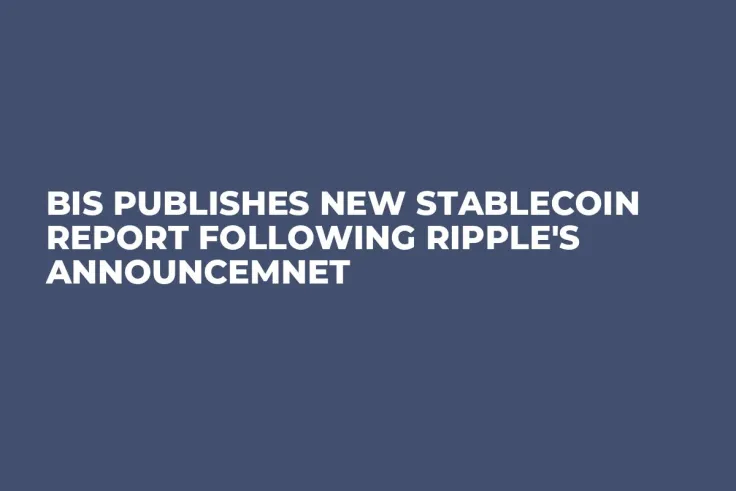
Members of the Financial Stability Institute (FSI) of the Bank for International Settlements (BIS) have published a new paper that focuses on the proliferation of stablecoins.
The paper mentioned several risks that stablecoins pose to their holders, which include possible instances of de-pegging. Not a single stablecoin has so far managed to maintain parity with the underlying asset "at all times." Stablecoin holders should have confidence in the issuer's ability to ensure timely redemptions. Authorities around the globe have also singled out various risks that stablecoins pose to financial stability.
Standard-setting bodies around the world are currently working on a regulatory framework that would address the rapid rise of stablecoins. The terms used to denote fiat-backed cryptocurrencies can vary across different regulatory frameworks (e-money tokens, dollar tokens, fiat-references, stablecoins, payment tokens, and so on).
Stablecoins can be either issued by banks and non-banks after obtaining the required approval or by entities with a crypto-specific license. In some jurisdictions, stablecoin issuers are supposed to comply with liquidity requirements.
The paper concludes that the regulatory landscape for stablecoins remains mostly fragmented despite some commonalities.
As reported by U.Today, Paul Grewal, chief legal officer at Coinbase, recently urged US lawmakers to finally pass a bill that would regulate stablecoins.
It is worth noting that the stablecoin market has already topped $150 billion, with Tether alone accounting for the lion's share of this sum. Earlier this month, San Francisco-based blockchain company Ripple also announced its intention to venture into this market.

 Dan Burgin
Dan Burgin U.Today Editorial Team
U.Today Editorial Team